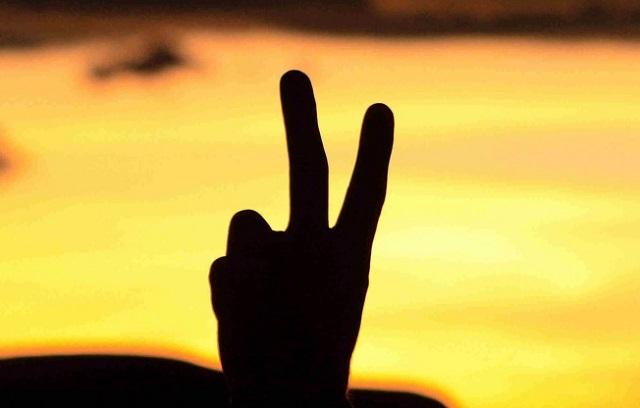Two crucial truths in the Chilcot report?
Posted By Tom Switzer on July 14, 2016 @ 06:00

The Chilcot report underlines two crucial truths that further undermine the Iraq War legacies of George W. Bush, Tony Blair and John Howard. The first is that the invasion was unnecessary, precisely because the US-led policy of containing Saddam Hussein’s regime was working. The second is that the invasion transformed Iraq from an al-Qaeda-free zone into an area where al-Qaeda and its progeny flourish. Neither point has attracted much attention in the past week.
Start with containment. In 26 February 2003—about three weeks before ‘shock and awe’ was inflicted on the Iraqi people—Howard took to the Wall Street Journal opinion pages [1] to explain why Saddam couldn’t be contained. Containment worked against the Soviet Union, he said, because ‘the doctrine of Mutual Assured Destruction guaranteed the maintenance of the status quo’ until the internal implosion of the old Soviet empire. Such a strategy couldn’t work against the Saddam Husseins’ of the post-September 11 world, the Australian Prime Minister warned, because ‘the cost of doing nothing is infinitely greater than the cost of acting’.
What Howard and other hawks failed to grasp, however, was that the Iraqi threat could’ve been contained as it had been contained since the 1991 Gulf War. The Iraqi dictator, far from being bent on religious martyrdom, was a cynical calculator whose overriding priority was to hold onto power and exercise it ruthlessly over the unfortunate people of Iraq. (Besides, as the anti-war conservative and ABC Boyer lecturer Owen Harries often quipped, what did Saddam ever do to Australia other than buy our wheat?)
True, containment can’t work against terrorists, who can run and hide. But Saddam wasn’t in cahoots with Osama bin Laden and the perpetuators of 9/11. Moreover, rogue states do have a mailing address; and it should have been clear that if Saddam smuggled weapons of mass destruction (WMD) to al-Qaeda or used banned weapons against US interests, his regime would have met ‘national obliteration’ from the US nuclear arsenal, as Bush’s senior advisor Condoleezza Rice pointed out in Foreign Affairs in 2000 [2]. Containment worked against nuclear-armed Joe Stalin and Mao Zedong at the height of the Cold War; it was working against Saddam Hussein, whose regime we soon discovered didn’t even possess WMD.
Granted, the sanctions, naval blockades, and no-fly-zone lacked the political sex appeal of ‘liberation’ after 9/11. But at least such realist strategies avoided the unintended consequences that a liberated Iraq has delivered. As a 98-year-old George Kennan, the intellectual architect of the Cold War doctrine of containment in 1947, warned six months before the invasion [3]: ‘If we went into Iraq, you know where you begin; you never know where you are going to end.’
Which brings us to the Islamic State. Few myths are as persistent as the argument that the Iraq invasion has no connection to the rise of the Sunni jihadist network. Washington neo-conservatives dismiss any links. So, too, does Howard.
Writing in The Australian [4] after Chilcot’s release, Greg Sheridan defended the former prime minister when he argued: ‘It is utterly intellectually dishonest to attribute the terrible instability and conflict in the Middle East to Iraq.’ Why? Because Islamic State emerged from Syria’s civil war, in which the US coalition didn’t intervene.
In fact, the taproot of today’s mayhem was what the distinguished US conservative columnist George Will has called [5] the ‘ruinous grandiosity’ of Bush’s ‘freedom agenda,’ which Tony Blair, Howard and Sheridan himself enthusiastically supported.
‘Liberation’ didn’t just amount to toppling a brutal tyranny that kept a lid on simmering ethnic and religious tensions. It meant toppling the minority Sunnis from power in Baghdad and replacing them with the majority Shia. As a result, the invasion upended the sectarian imbalance that had been in place for generations. It also created a power vacuum that was swiftly filled by al-Qaeda in Iraq.
A Shia sectarian regime, supported—perversely—by both the Americans and Iranians, was more focused on revenge against former tormentors rather than building a nation. Meanwhile, Sunnis resented their new status as political losers in post-Saddam Iraq. As a result, many felt their only recourse was to tolerate, even support, the Sunni insurgency against the US-led occupation that morphed into a plethora of Sunni jihadist groups who were even more fanatical than al-Qaeda.
It’s no wonder virtually every scholar of the Middle East claim al-Qaeda in Iraq became the progenitor of Islamic State. Many IS commanders, including Abu Bakr al-Baghdadi, learnt their fighting skills during the US-led occupation. They moved to Sunni Syria, because the ‘surge’ of 2007 had temporarily kept a lid on those age-old ethnic and tribal tensions. When those tensions resurfaced after the withdrawal of US troops in 2011, the jihadists returned to Iraq with a vengeance.
Those who continue to deny the link between the needless, foolish and ultimately catastrophic war and today’s mayhem in the Middle East should heed the French philosopher Henri Bergson’s musings that ‘the present contains nothing more than the past’, and that ‘what is found in the effect was already in the cause’.
Article printed from The Strategist: https://aspistrategist.ru
URL to article: /two-crucial-truths-chilcot-report/
URLs in this post:
[1] Howard took to the Wall Street Journal opinion pages: http://www.wsj.com/articles/SB1046223452915570663
[2] Foreign Affairs in 2000: https://www.foreignaffairs.com/articles/2000-01-01/campaign-2000-promoting-national-interest
[3] warned six months before the invasion: http://historynewsnetwork.org/article/997
[4] Writing in The Australian: http://www.theaustralian.com.au/opinion/columnists/greg-sheridan/the-chilcot-report-giants-show-the-path-to-truth-in-fog-of-war/news-story/3276a9826f2c4baddd3d0943aa6bf98d
[5] George Will has called: https://www.washingtonpost.com/opinions/obamas-foreign-policy-of-retreat/2014/06/16/37aa0dcc-f578-11e3-a606-946fd632f9f1_story.html
Click here to print.